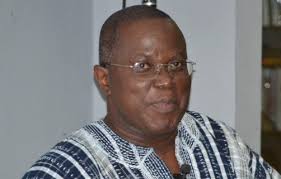NDPC publishes first Annual Progress Report in 30 years

The National Development Planning Commission (NDPC) has, for the first time in three decades, published the government’s Annual Progress Report to provide the public with an accurate picture of national performance across key sectors.
Speaking on The Point of Viewon Channel One TV, Monitored by NSEMGH on Monday, October 27, the Chairman of the NDPC, Dr. Nii Moi Thompson, said the report is an important accountability tool that allows citizens to assess how well government ministries, departments, and agencies (MDAs) are meeting their development targets.
“We had to finish the annual progress report, and for the first time in 30 years, we published it so that the public knows how the government performs,” Dr. Thompson said. “I have always told journalists that if you really want to know how the government of the day performs, look at the annual progress report. Unfortunately, most people don’t pay attention.”
He revealed that 13 MDAs failed to submit their reports for the 2024 review period, describing the situation as a serious breach of accountability.
“About 13 different ministries, departments and agencies did not submit their reports for 2024, which is a serious infraction,” he disclosed. “And the Finance Minister, Ato Forson, is actually cracking the whip on that.”
Dr. Thompson expressed particular concern that two of the country’s largest spending ministries—the Ministry of Education and the Ministry of Health—were among those that failed to comply.
“What is even more disturbing is that two of the number are two of the biggest spenders in the country—the Ministry of Education and the Ministry of Health. Between the two of them they account for over 51% of government spending, and yet when it came time to submit their annual progress reports, they simply didn’t do that,” he said.
The NDPC chairman stressed that the publication of the report marks an important milestone in promoting transparency and evidence-based decision-making in government.
He urged journalists, civil society organisations, and the general public to use the document as a basis for holding public institutions accountable and ensuring better delivery of national development goals.

